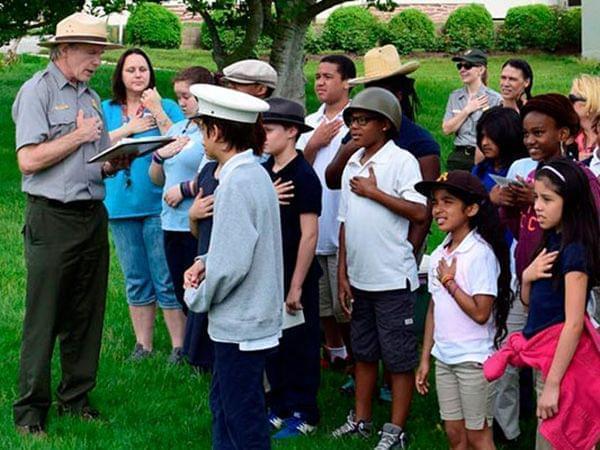City of Champaign Candidates on Measuring Impact

National Park Service
This question was created by journalists and community members during the Democracy in CU: Let’s talk solutions to community violence event on March 14th.
How will you measure the impact of city-funded programs?
MAYOR
Deborah Feinen:
We have reports at least annually on the goals and accomplishments of city funded programs. We also have updates on programs and initiatives relating to City Council goals, so we are informed on the status of those goals.
CITY COUNCIL
Tom Bruno:
Cost-effective measurement with relevant metrics are essential.
Andrew James Christensen:
Cost-benefit analysis of publicly funded programs is often simplified to placing monetary value on outcomes and asking, “Did we make more than we spent?” This is reductive and misses the point that government exists to provide a basic quality of life and security net to its citizens. The decisions of the city council directly impact the comfort, the culture, and the opportunities available to all the citizens of our community.
A successful city program is one that sees equal participation from citizens across the socioeconomic spectrum, that is directed by the members of communities it is meant to help, that engages participants previously excluded or uninvolved in a process, and that improves community health, safety, security, and individual growth.
Matthew Gladney:
Many of the programs the city helps fund provide annual reports to the city council (both written and verbal), and those are prime occasions for us to assess how well they are doing. One of the things we always stress is metrics. We want data, in order to make an informed and cogent assessment of what the impact of these particular programs are on our community.
William Kyles:
Great question! It depends upon what area we are discussing. If it's a program such as a business incentive program, I would look at numbers of businesses created, sustained and grown from this initiative. As it pertains to youth programs, there are several ways to measure the impact. We would study existing data to determine how we are trending and if we are utilizing the correct approach to influence positive results. When you're talking about economic development, we have to look at the performance of the project versus the spend.
Pattsi Petrie:
First, do a baseline measure for any program; second, each program needs a specific timeline for continuing phases of collecting data for the same variables; third, depending on the sample size will drive the appropriate type of statistical analysis. The results ought to be shared with the city council to determine the value of a program and funding continuance. In addition data collection provides necessary information for grant writing.
Jon Paul Youakim:
When we vote and decide on city-funded programs I want to make sure we are as scientific as possible. I want to ensure that we have multiple objective measures that we are going to follow so that we know as a city if the program is moving in the correct direction as planned or if we need to make changes or even scrap the program. As a scientist I have a different perspective than a politician. From a scientific perspective it is okay to be wrong. What is not okay is not learning from your mistakes. We make the best decisions based on the evidence available and we make plans of how to know if our educated guess is incorrect and how to change course. The measurement of the impact of city-funded programs will all vary, but all should remain objective with primary and secondary goals.
NOTE: We reached out to Azark Cobbs, Kenton Elmore and Michael LaDue and received no or incomplete responses.

